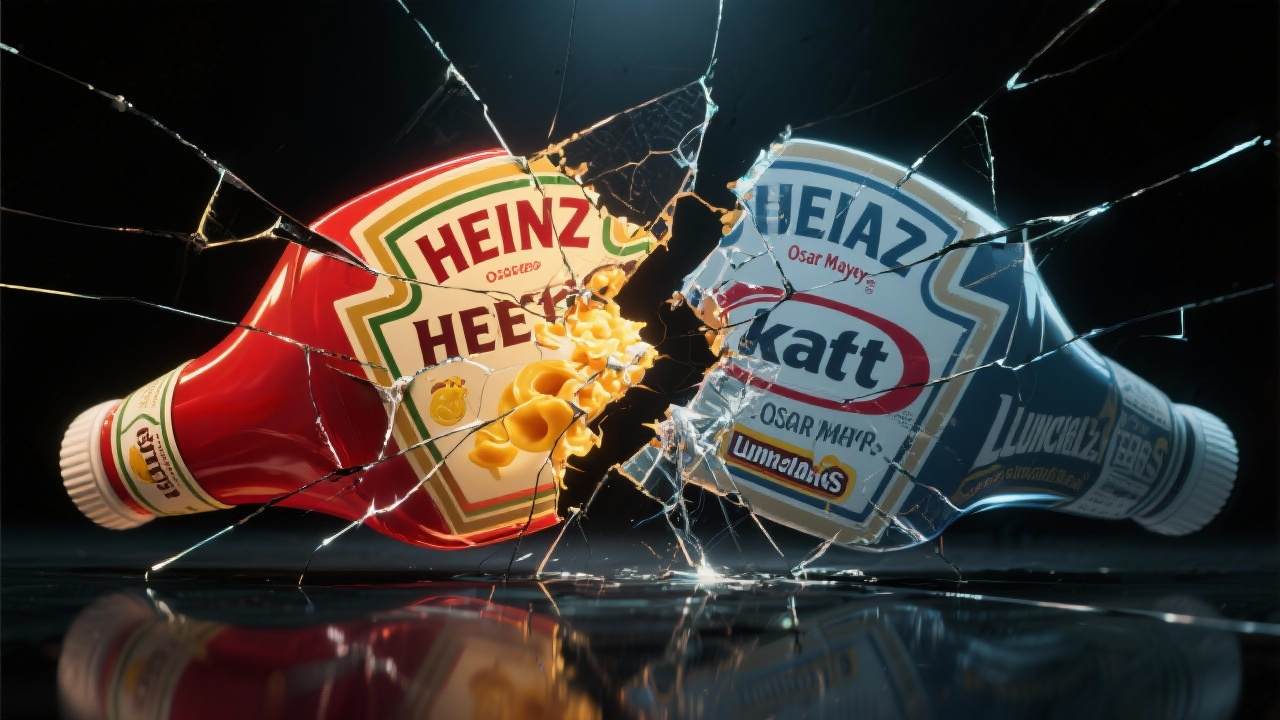
A Split 10 Years in the Making
Kraft Heinz, the food giant behind staples from ketchup to mac and cheese, announced it will break itself in two, undoing a $46 billion deal once hailed as Warren Buffett’s crowning achievement in packaged foods.
The move comes after years of slow growth, massive write-downs, and a consumer base drifting toward healthier, fresher options.
The company said it will spin off its businesses into two publicly traded firms:
- Global Taste Elevation Co — housing faster-growing lines like Heinz ketchup, Philadelphia cream cheese, and Kraft Mac & Cheese, with roughly $15 billion in annual sales.
- North American Grocery Co — focused on staples such as Oscar Mayer, Kraft Singles, and Lunchables, totaling about $10 billion in annual revenue.
This restructuring will finalize by late 2026, in what analysts call a strategic retreat mirroring the breakups of Kellogg, Warner Bros Discovery, and GE.
Why the Mega-Merger Soured
When Buffett’s Berkshire Hathaway partnered with Brazil’s 3G Capital in 2015 to merge Heinz with Kraft, the expectation was simple: slash costs, squeeze synergies, and mint cash. For a brief moment, Wall Street adored the model. But the cuts gutted innovation. Kraft Heinz was left peddling legacy brands while rivals doubled down on organic and health-conscious foods.
By 2019, a $15 billion write-down on Kraft and Oscar Mayer proved Buffett’s own warning true — he admitted Berkshire had “overpaid for Kraft.” Since then, Kraft Heinz stock has lost more than 60% of its value.
An Industry-Wide Trend
The move fits a broader trend in Big Food. Kellogg split off its successful snack brands into a separate firm in 2023, renaming its cereal business WK Kellogg. Keurig Dr Pepper announced its own breakup this summer. Even Warner Bros Discovery and Honeywell have shed businesses over the past few years. Investors seem more rewarded when companies narrow their focus rather than clump everything under one corporate roof.
Buffett’s “Amusement” — and Disappointment
On Tuesday, Buffett acknowledged his disappointment in the split but stopped short of trying to block it. Berkshire Hathaway remains Kraft Heinz’s largest shareholder. For a man often praised for his patient buy‑and‑hold philosophy, this unraveling of one of his rare high-profile deals with private equity has a certain irony.
In 2015, Buffett quipped that ketchup and cheese were as close to “forever brands” as you could buy. A decade later, soda- and chip-aisle loyalty looks shakier. Consumers are trading down to private labels, while blockbuster drugs like Ozempic curb demand for processed snacks.
Buffett has often said he doesn’t regret mistakes as much as failing to act fast enough. Kraft Heinz’s split may be the late pivot he long resisted — part retreat, part reset.
What Comes Next
For shareholders, the bet is clear: separately managed companies can be leaner, faster, and more attractive for investors or acquirers. Global Taste Elevation Co could chase international sauces and condiments growth, while North American Grocery Co leans into convenience formats and affordable packaged meals. Whether either can escape the shadow of inflation, health‑focused consumers, and retailer pushback remains the bigger question.
But one thing is certain: what was once one of Wall Street’s most celebrated food deals is now a case study in how size, cost-cutting, and nostalgia alone can’t feed growth.
